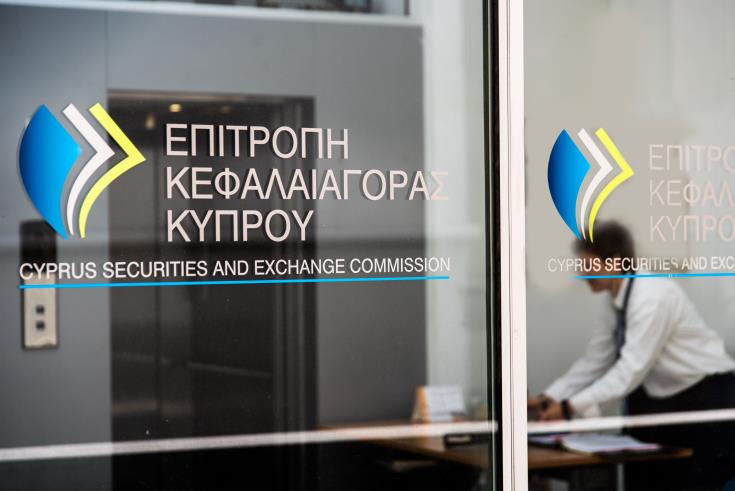The financial services industry in Cyprus saw tremendous growth over the past decade.
Although much of its activities were directed outside the country, the industry proved to be a reliable source of growth and prosperity for the island.
Economic growth requires all economic actors to put to good use their resources to maximise returns, not just for them but the entire society.
Technology and financial innovation have brought about tremendous successes by supporting new industries’ growth and creating new job opportunities.
However, sometimes they have failed.
Junk bonds and contingent convertible bonds (CoCo bonds) are examples of how finance, despite all good intentions, can turn sour for investors.
Many people acknowledge that the success of the financial services industry was largely due to the energetic leadership of the Cyprus Securities and Exchange Commission (CySEC).
When we talk about financial services in Cyprus, we mean the entire sector regulated by CySEC and CIFs in particular, and many other services.
In the past decade, we saw the rise of binary options trading and their latter suspension by regulators only to be replaced by other equally speculative products such as foreign exchange and cryptocurrencies.
I asked CySEC’s former Vice Chairman, Andreas Andreou, and Marios Cosma, a leading advisor in financial services with Treppides & Co, if they see a future in the industry with products that can support the real economy.
“Financial engineering, being innovative and very creative, has always existed in parallel with the real economy.
“To be exact, financial services is a pillar for economic activity, growth, and prosperity, although this is not always clear, especially to the layman,” said Andreou.
“Financial engineering in many ways is the response to many factors such as the increasingly complex world, creation, distribution and management of wealth, technology, green global initiatives, but also meeting needs at individual/personal level.”
Regulators, Andreou said, are tasked to ensure the financial system’s stability, fair competition, and equally important investor protection.
“This is not always easy because, in practice, innovation is always ahead of regulation.
“Therefore, a concerted effort amongst all stakeholders is required in order to reach the desired result.”
Marios Cosma said the financial services industry is fascinating because the market and the investors determine the products that are available to trade.
Market players
“If we are asked to insert labels to the financial products either because of ignorance or because of lack of understanding of the nature of the financial products, this will only lead to a rejection of the financial products.
“In the industry, financial products are being constructed, and the price, hence their value in the market, is determined by the market participants, the investors, and the basic principle of demand and supply,” Cosma said.
“As a result of technology innovation, online trading platforms available in the market and on the internet, the financial services industry is now accessible by millions of investors, who 15 years ago could not reach and trade in the financial markets.
“Currently, a plethora of investment firms, regulated and licensed in Cyprus, offer financial services to the investors throughout the EU.”
CySEC Chairwoman Demetra Kalogirou and Vice-chairmen George Theocharides and Andreas Andreou, especially in the last 10 years, allowed the development of the online financial services industry and the fund industry, making Cyprus an important player in determining the financial services framework in the EU.
“This must be properly communicated to the European regulators through political channels so that we maintain Cyprus’ important role in this industry.”
Cosma said there is also a misunderstanding as to the financial products offered by the Cyprus Investment Firms.
“We hear that companies are offering foreign exchange when this is not correct.
“The CIFs are primarily offering contracts for differences (CFDs) with the underlying assets being financial assets, including foreign currencies.
“CIFs also offer CFDs for other financial products, such as shares, options, etc.
“The missing ingredient to make the financial services industry in Cyprus strong and solid is the training of investors and how the financial products are presented to them to understand better and know.
“Furthermore, the financial sector is also open to funds and fund management companies.
“Again, if these are promoted through the proper channels and disassociated from the traditional marketing of taxation, the financial services industry in Cyprus will become even more solid and strong, and a long-term source of income for Cyprus.”
Financial services are a major contributor to GDP, offering thousands of jobs to Cypriots.
“Due to growing demand, we have experienced workforce migrating from abroad, creating demand for housing (through ownership or rental), a professional tourism industry which promotes the hospitality sector, restaurants, car rentals, etc.
“The chain can be expanded to include education since there is demand for private schooling as professionals bring their families and integrate into the local communities.
“The financial services industry must remain a priority for government and must ensure that the resources are available to the regulators, such as CySEC and the central bank, to enjoy a long-term benefit.”










